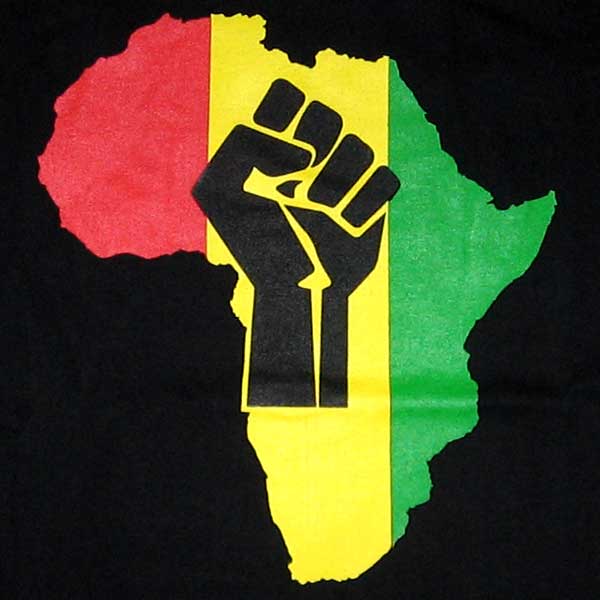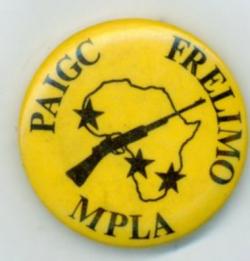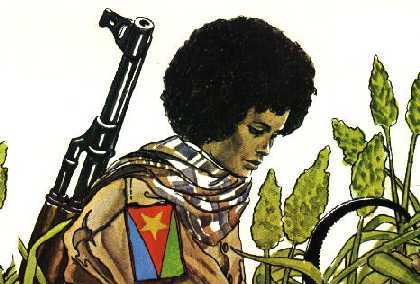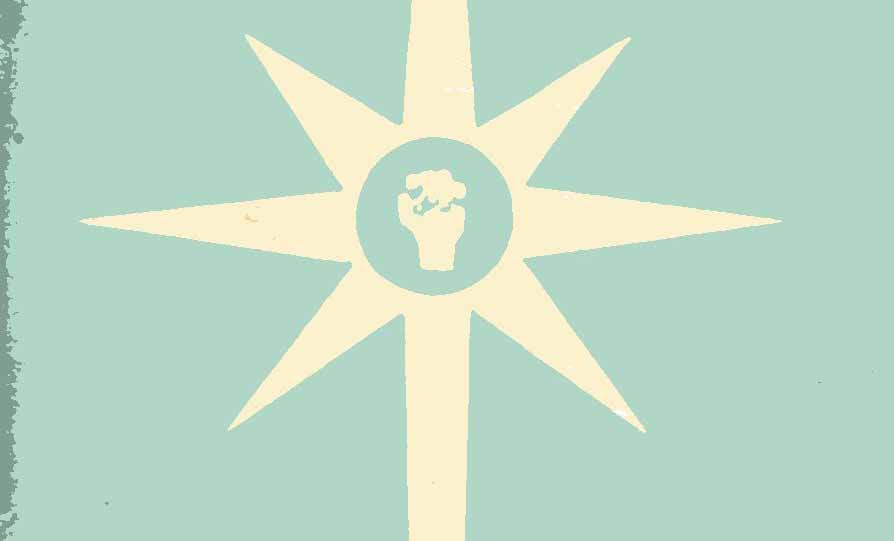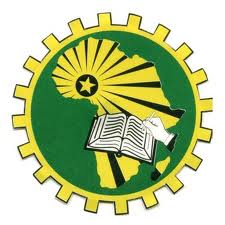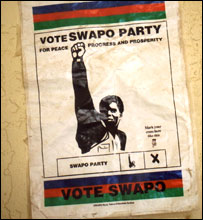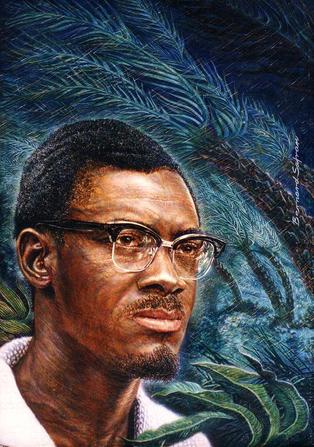African liberation movements
African liberation movements arose from a growing nationalism among previously divided African communities, the unfulfilled promise of self-determination following the end of World War II and the weakened economic and political capacities of Western Europe.
Our collection contains a wide range of materials representing liberation movements from Zimbabwe, South Africa, Namibia, Mozambique, Angola, Guinea-Bissau, Eritrea, and the Congo (DRC). Our collection also features containing Human Rights Reports from South Africa, IKWEZI, a revolutionary Azanian journal, and a sub-collection containing general resources about the continent. This collection includes audio and paper materials.
Strengths of the collection include materials on the role of women in African liberation struggles and national reconstruction, an interesting assortment of periodicals from Southern Africa, speeches and interviews with revolutionary leaders from across the continent, audio from solidarity events in the United States, and a set of human rights reports compiled during the transition from Apartheid to democracy in South Africa.
Our collection contains a wide range of materials representing liberation movements from Zimbabwe, South Africa, Namibia, Mozambique, Angola, Guinea-Bissau, Eritrea, and the Congo (DRC). Our collection also features containing Human Rights Reports from South Africa, IKWEZI, a revolutionary Azanian journal, and a sub-collection containing general resources about the continent. This collection includes audio and paper materials.
Strengths of the collection include materials on the role of women in African liberation struggles and national reconstruction, an interesting assortment of periodicals from Southern Africa, speeches and interviews with revolutionary leaders from across the continent, audio from solidarity events in the United States, and a set of human rights reports compiled during the transition from Apartheid to democracy in South Africa.
Subcollections
-
Africa- General Resources
This collection contains general resources about various themes related to the African continent. The collection draws from many types of materials (periodicals, books, pamphlets) and many different countries (Kenya, Guinea, Tanzania). -
Angola, Guinea-Bissau and Mozambique
This collection contains materials from the liberation struggles in former Portuguese colonies. Guinea Bissau gained independence in 1973 and Mozambique and Angola achieved independence in 1975. -
Anti-Apartheid Solidarity
This collection contains materials from Bay Area anti-apartheid movements of the 1980s originating from various sources, primarily Bay Area-based South African solidarity groups. -
Eritrea
Eritrea is located in the Horn of Africa. It gained its independence from Ethiopia in 1991 after a 30 year struggle for independence. -
IKWEZI
IKWEZI is a revolutionary Azanian Journal based on Marxism-Leninism-Mao Tsetung Thought. -
South Africa
This collection contains a variety of materials which focus on the anti-apartheid movement both within and outside of South Africa. -
South Africa: Human Rights Reports
The Human Rights Commission published weekly, monthly and annual reports. In addition, occasional in-depth special reports were published on important human rights issues. -
SWAPO- Namibia
SWAPO (Southwest Africa Peoples Organization) was formed in 1960 to fight for liberation in present day Namibia. Namibia gained independence from South Africa in 1990. -
Zaire-DRC
This collection contains materials from the Congolese struggle against neocolonialism and the rule of General Mobuto Sese Seko. -
Zimbabwe
This collection contains information about the liberation struggle in Zimbabwe, mainly focused on the struggle against Rhodesia and white settler rule.
Documents
8 Documents Found
(same as KP 048a) 1988 or 89: Alice Walker and Bernice Johnson Regan reading from Winnie Mandela’s autobiography, “Part of My Soul Went With Him.” Johnson reads the chapter titled “No Human Beings Can GO On Taking Those Humiliations Without Reaction.” Begins and ends in the middle of a sentence.
Jimmy Carter began traveling to Africa in 1987 and became aware of various publicly unknown conflicts in countries such as Sudan and Ethiopia. In this press conference, he announces and maps out the peace negotiations he is to mediate between the EPLF and the Ethiopian government. In the conference, both groups make statements expressing their desire to peacefully end the conflict.
Discussion/interview with Elisabeth Sibeko, the Secretary for labor of the Pan African congress of Azania, South Africa. Sikeko centers her discussion on the plight of female prisoners, especially political prisoners and describes torture tactics inflicted on these women for information. She details sexual torture tactics used against both men and women, but explains how the women have the worst plight in this situation. The tape becomes jumbled but soon becomes audible as Sibeko talks about "Influx Control Laws" that force people in urban areas to move from their homes. The process leaves many stranded and abandoned with no homes, which created conditions for what she calls "squatter camps." The tape then suddenly ends.
Walter Turner discusses the political and humanitarian situation in Somalia. He provides historical background and context, then covers a number of issues including Western perception of Somali culture, an explanation of clans and their role in the conflict, and the role cold war politics played in destabilizing Somalia. He also discusses the role of the US in the current crisis and the need to reevaluate the purposes of Western interventions in Africa.
Zimbabwe president Robert Mugabe gives a speech to African Americans living in Harlem, at a rally on Harlem Day, August 23, 1980. On the occasion of Zimbabwe’s admission to the United Nations, Mugabe thanks people for their support of Zimbabwe’s struggle for national independence and against colonial racist white rule. He celebrates the victory of the black man in Zimbabwe and the continued struggle for non-racialism and equality. He ends his speech with the hope that the victory of Zimbabwe will inspire the oppressed Africans in South Africa and Namibia.
Tirai Kangai speaks on the RNA (Republic of New Africa), the liberation of Zimbabwe, pan-africanism, and talks about the history of the struggle for independence in Zimbabwe by ZANU (Zimbabwe African National Union). He also speaks about how ZANU is engaging in armed struggle against British and US imperialism.
Call Number: AFR 017BFormat: Cass BProducers: WWRL New YorkProgram: Black Dialogue ProgramCollection: Zimbabwe
Jensen speaks about changing American’s attitudes toward Southern Africa, and the Material Aid Campaign’s “Dollars for Bullets” Campaign. The Campaign supports the liberation struggle in Zimbabwe and also SWAPO’s (Southern African People’s Organization) call for United Nations sanctions against South Africa.
Peter Jones of Azanian People’s Organization (AZAPO) speaks on life in the black townships in South Africa, current political climate under white rule, and the role of students in the struggle.
Same as AFR 015B
8 Documents Found

